
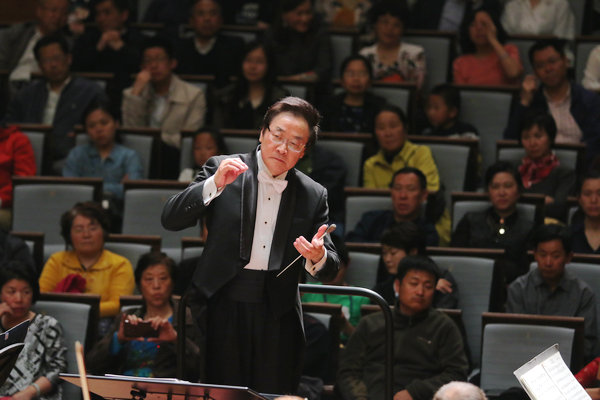 |
|
Conductor Chen Zuohuang and his team with the National Center for the Performing Arts have prepared 34 Chinese works for this year's Symphonic Spring program. [Photo provided to China Daily] |
When 9-year-old Shi Wanchun heard music playing on an organ in his school in 1945-the year China saw the end of the War of Resistance Against Japanese Aggression (1937-45)-he could not have expected that, 15 years later, his own composition would be performed by an orchestra.
Even more surprising, 60 years later, his nation would become a big player in the world of classical music.
Shi will turn 80 in June.
According to the National Center for the Performing Arts, the first symphonic score composed by a Chinese was in 1916. That's why the NCPA is staging concerts by 12 Chinese orchestras this month to celebrate a century of symphonic music in China.
It took the team, led by NCPA music director Chen Zuohuang, a whole year to collect and prepare 34 pieces by 29 composers, including Shi.
On Wednesday, the Shandong Song and Dance Theater Symphony Orchestra played Shi's best-known work, Festival Overture, under the baton of Yang Youqing.
Shi created the piece in 1959, when he was a senior student at the Central Conservatory of Music in Beijing.
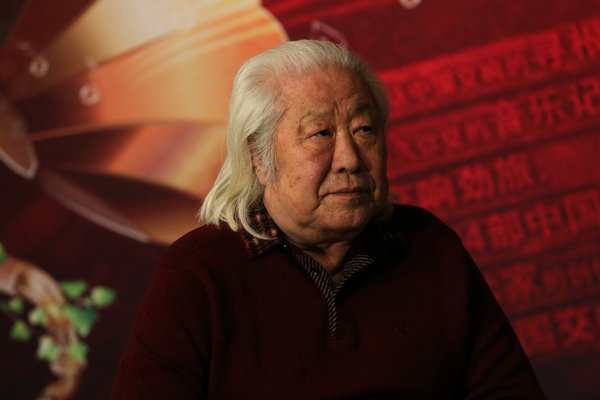 |
|
[Photo by Jiang Dong/China Daily] |
Using a Hebei folk tune usually played on the traditional Chinese brass instrument the suona, he composed a vigorous sonata with a richly festive air. It also represents children playing in the field on summer nights and adults celebrating the harvest.
The piece became popular overnight in a time when the whole country was eager to build a "socialist society". Like the Radetzky March, which is always played at the New Year concert, Shi's Festival Overture has been a staple of Chinese orchestras' celebration repertoires.
Born in a rural area in North China's Hebei province, Shi enjoyed watching performances by local opera troupes. In 1945, he moved with his family to Beijing, where he first heard organ music in his primary school.
He loved the sound so much that after class he often sneaked into the only music classroom, quietly opening the cover and carefully touching the keys.
He started to teach himself basic music theory and some traditional Chinese instruments, such as the erhu (a two-stringed bowed instrument) and dizi (a flute).
"Some of my friends like literature, and some like painting. I found that music touched my heart the most. I could not hold back my tears when I heard Beethoven's Sixth and Ninth symphonies," he says.
Shi started to learn the piano in middle school. He often secretly worked on harmonies during Russian and history classes. The teachers were annoyed and kicked him out of lessons.
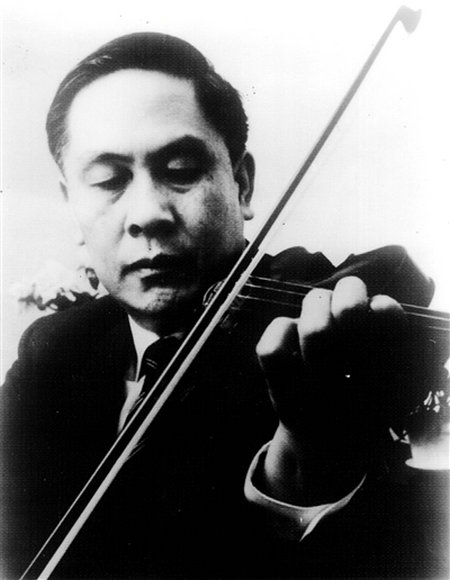 |
|
Ma Sicong (left) in the 1970s. [Photo provided to China Daily] |
Once he lost the key to the piano room and had to break the door. The school warned him and did not allow him to play the piano after that.
The incident left him depressed because it was very difficult to find a piano in 1950s' Beijing. He could only cling to the radio every day, hoping to hear some music.
His parents wanted him to work to help the family after high school. He said "sorry" to his mother, telling her he wanted to be a composer.
Shi spent six years at the Central Conservatory of Music, learning both Western classical composition and traditional Chinese and folk music. He joined the faculty in 1961.
Because of his talent, he was chosen to be the co-composer of the famous Chinese ballet Red Detachment of Women.
Later he joined the National Symphony of China as the resident composer to create many symphonic works. Shi also has a knack for writing movie scores. In the past 50 years he has created music for some 50 films.
Shi is one of 29 contemporary Chinese composers whom the NCPA is celebrating through its Symphonic Spring program.
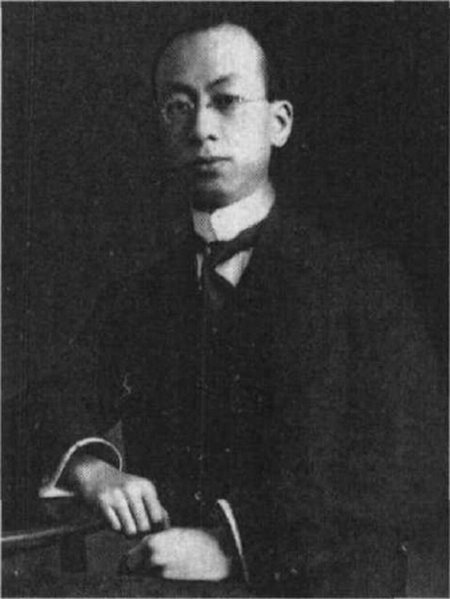 |
|
Xiao Youmei in 1916. [Photo provided to China Daily] |
In the opening concert on April 8, NCPA music director Chen conducted the Guiyang Symphony Orchestra to play pieces by Huang Zi (1904-38), Ma Sicong (1912-87), Li Siguang (1889-1971), Xiao Youmei (1884-1940), He Lyuting (1903-99) and Lin Shengxi (1914-91).
According to Chen and his team's research, the first symphonic work by a Chinese composer was Requiem by Xiao Youmei.
In 1916, well-known revolutionaries Huang Xing and Cai E died. Xiao, who was studying at the Hochschule fuer Musik und Theater (University of Music and Theater) in Leipzig, Germany, created the work to mourn the two.
Xiao conducted a 16-member orchestra of Peking University to premiere the piece in Beijing in 1925.
"Xiao had to rearrange the score since he had only 16 players. Though we found the spectra handwritten by Xiao, we didn't know what the original whole score was like," says Chen.
In previous editions of the Symphonic Spring program, the NCPA focused on introducing Chinese orchestras. Chinese works are another important point that the organization wants to promote.
"The concertgoers may be familiar with such names as Tan Dun, Guo Wenjing and Chen Qigang, but they seldom know their predecessors who gave birth to classical music in China," says Chen Zuohuang.
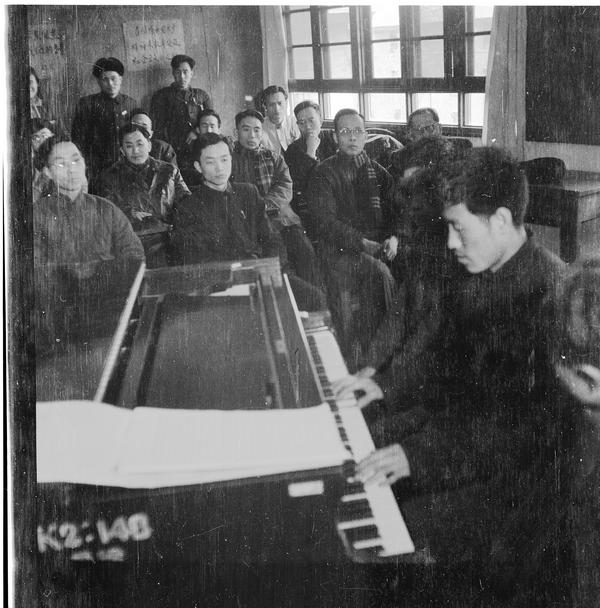 |
|
Shi Wanchun's Festival Overture was performed in 1960. [Photo provided to China Daily] |
"It's difficult for us to collect all the old scores. Some are from the late composers' families and others are kept in the conservatories. When we found these old scores, we found many handwritten notes missing over time and some we realized that had never been played before based on our technical deductions.
"Now that they have been found, it's urgent to let today's people hear that music."
Tan Lihua will conduct the Beijing Symphony Orchestra to play works by Ma Sicong, Wang Xilin and Chen Qigang on April 24.
He says: "China now has more than 70 orchestras, and every year one or two new ones are established. In previous years, most of them have performed at the NCPA's Symphonic Spring. But the quantity of orchestras cannot prove the quality of the classical music. The compositions and composers are more important."
He says talented youth graduate one after the other, but most of the aspiring composers don't get a chance to have their works played. Orchestras all perform known composers' works, especially Western ones. Chinese composers need exposure.
"The NCPA has taken the initiative to do the job of commemorating our predecessor composers, and we orchestras will also play our parts to continue the mission," says Tan.

Presented by Chinadaily.com.cn Registration Number: 10023870-7
Copyright © Ministry of Culture, P.R.China. All rights reserved